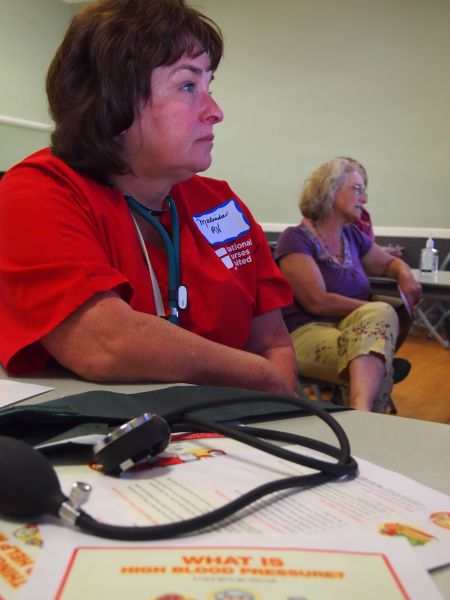K'JIPUKTUK (Halifax) - Mandatory nurse-to-patient ratios are a contentious issue in Nova Scotia.
Nurses, members of Local 97 of the Nova Scotia Government Employees Union, say that mandatory ratios are necessary. Too often the nurses are understaffed, putting patients' health and even lives at risk.
Capital Health, their employer, argues that mandatory ratios are too costly to implement and not effective.
Bargaining has reached a standstill, a mediator has been appointed and the countdown to a strike has started.
Kathleen MacMillan, Director of the Dalhousie School of Nursing, points to California to support the argument that mandatory ratios are a bad idea.
"Experiments with fixed nurse-patient ratios in other jurisdictions (.e.g. California), which were initially hailed as solutions, have largely been policy failures and have been abandoned," writes MacMillan inThe Chronicle Herald.
Malinda Markowitz is a Co-President of the California Nurses Association (CNA). She also still works as a nurse in a California hospital. Her union was instrumental in getting legislation passed that establishes mandatory nurse-to-patient ratios in California.
Markowitz doesn't think at all that in California legislated nurse-patient ratios were a failure. And that mandatory ratios were abandoned is news to her.
"That's totally absurd and ridiculous," says Markowitz. "First of all, it was never an experiment. It was a very thorough look at what was happening in the hospitals and to the patients. And it has not been abandoned by any means in California."
"I have been a nurse since 1980," says Markowitz. "I have been working for many years on med-surg, first without having ratios, and then after we had the ratios. What patients tell us is that since the change patient care has improved tremendously."
Quality of patient care was central in the California nurses' argument. Much as it is in Nova Scotia.
"We had seen a deterioration of the quality of care that our patients were receiving as a direct result of having more patients assigned to one nurse than was safe," says Markowitz.
"Patients weren't receiving the emotional care, medications were being delayed, patients weren't up ambulating [walking about, assisted by a nurse], we'd see an increase in infections, we weren't turning patients as much as necessary."
And, similar to Nova Scotia, working under those conditions was very stressful.
"We had long-time nurses that were leaving the profession, because they feared for their license on a daily basis. The nurses were going home crying because we weren't able to give the patients the care that they deserved," says Markowitz.
This changed when the ratios became law.
"Before, nurses were leaving the profession in droves. When we got the ratios Registered Nursing licenses went up by 60 per cent," says Markowitz. "Because nurses saw, this is a good profession now, we have the protection to safely take care of our patients."
Hospital management in California fought back.
A lack of flexibility in staff scheduling options will cause delayed surgeries and all kinds of other problems, management predicted.
Not so, says Markowitz.
"In my hospital I don't think we have ever been out of compliance with the ratios. It just doesn't happen. They're always able to get enough nurses to come into work if there are sick calls."
"It doesn't matter whether you are a new nurse or that you have been in nursing longer, there are only so many patients you can take care of safely and adequately," says Markowitz.
Markowitz also tells the Halifax Media Co-op that contrary to management's predictions other staff positions have not been cut just so that nursing staff levels can be met.
"We still have nursing assistants, unit clerks, auxiliary staff, they have not been removed. You're always going to need those other types of workers."
Nova Scotia and California nurses share a distrust of committees where nurses and management together set appropriate staffing levels for the hospital where they work.
"These don't work because ultimately management overrides what nurses want. Now if nurses had control over the budget, maybe that is something we would look at it. But we know that wil never happen," says Markowitz.
"I think what [the Nova Scotia nurses] are going for is important. They need to continue to fight for it. Nurses in the USA are absolutely one hundred percent supportive."
"It really is nurses helping nurses, nurses helping nurses to help the patients. Regardless of what anyone says, keep up the fight. It is about patients, about having the best quality of care."
See also: Nurses strike ever more likely
Follow Robert Devet on Twitter @DevetRobert



